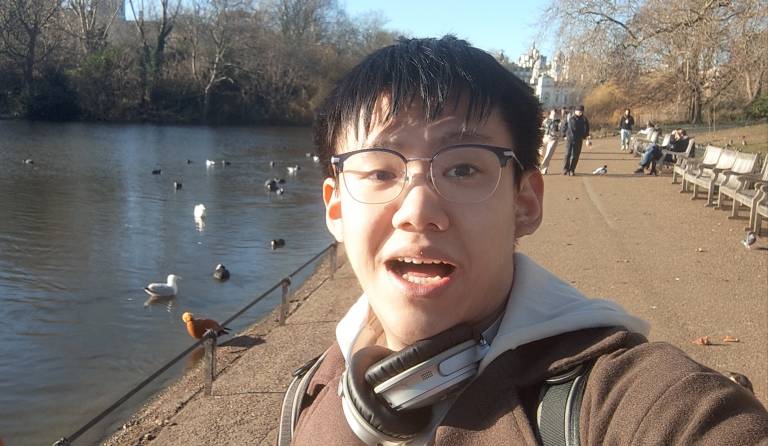Meet Longxu, a current Public Policy Student, and find out more about his journey at UCL.

What were your first impressions of the department?
I think UCL's Political Science Department has strong academic strength. The Department offers a large number of excellent modules covering almost all sub-fields within political science. On the other hand, the strength of UCL as a multidisciplinary university is also very attractive to me. This means gaining more specialized insights in key interdisciplinary topics such as climate politics and AI governance.
What were your first impressions of the department?
I was surprised by its diversity. The students come from a diverse range of cultural backgrounds and expertise, and the teachers have a very diverse range of research areas. These diversities have brought us many insightful perspectives in subsequent scholarly discussions.
What is the rest of your cohort like?
The rest of the cohort are very friendly and helpful. Some of them started postgraduate studies directly after completing their undergraduate studies, while others have some professional experience. In any case, they were all very happy to use their experience and knowledge to help me with my academic and life puzzles.
What is the teaching and learning like?
Teaching consists of two parts, lecture and seminar. In lecture, students learn the basics of the subject and listen to the professor's insights, while in seminar there are more interactive discussions. The tutors encourage us to express our views and guide us to think deeply in a critical way, which benefits me a lot.
What do you like best about your course so far?
One of my favourite things about my course is that all of the course encourage us to discuss and collaborate with other students to solve problems. Interacting with others not only promotes my skills in socialising and expressing myself, but also helps me to continually critically examine and improve my academic arguments.
What advice would you give to overseas students wanting to study in the UK?
Please acquire a basic knowledge of intercultural communication before coming to the UK! Whether at UCL, in London, or in the UK, the living and learning environment is highly intercultural. So knowledge of intercultural communication can help you participate better and more quickly in discussions in social and academic settings.
Would you recommend your programme to prospective students and why?
Of course! Because whether you want to start your future career in the public, or private sector, or go on to a PhD, UCL's MSc Public Policy programme prepares you with the appropriate resources and capabilities.
What are your career aspirations and how do you envisage your master’s helping with these?
I want to enter a think tank in the future and become a policy research fellow. My Master's programme has provided me with a lot of useful content for my future career. Not only did we learn a lot of career-oriented expertise, but we also participated in a lot of career events that helped us find jobs, where we can have access to experts and alumni who are working the respective field.
Where is your favourite study place on campus?
That must be the UCL student centre. It has the most modern facilities and is definitely the place to be, whether I want to be alone and study in peace or wish to have a discussion with my friends.
If you could implement one for policy in the world today, what would it be?
I will launch a policy to promote the use of AI to empower workers globally. That way, people will be able to get their work done in less time, have more time to rest, be with their families, develop their hobbies, and get involved in their communities and countries.
 Close
Close

